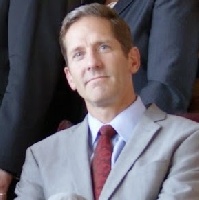 Pierce County, WA Felony Lawyers
Pierce County, WA Felony Lawyers
Sponsored Law Firm
-
 x
x

Click For More Info:
-
Cristine Beckwith, Attorney at Law
1115 Tacoma Ave S Tacoma, WA 98402» view mapCriminal Defense Law An Attorney Who Never Gives Up
Cristine Beckwith is a Tacoma criminal lawyer who is dedicated to defending her clients. She is a zealous advocate and proven negotiator who will work hard for you.
253-238-8273
Not enough matches for Pierce Felony lawyer.
Below are all Pierce Criminal lawyers.
Sponsored Lawyers
1-10 of 54 matches
Criminal, Divorce & Family Law, Bankruptcy & Debt, Accident & Injury, Traffic
From our offices in Seattle and throughout the state of Washington, we help families solve difficult legal problems and move on with their lives. We are a dedicated team of attorneys who are here to help your in your time of need and crisis. Our Seattle, WA lawyers have the experience, resources, and understanding to help you with your legal issue. We always offer a free initial consultation because we believe that it’s important for you to understand your rights and options. Our goal is to give you the information you need to make the best decisions for you and your family. Because we know that many people are concerned about the cost of legal fees, we offer affordable low flat fees and inexpensive payment plans. If you’re facing a difficult legal problem and need guidance from an experienced, knowledgeable attorney, call us today. We want to help you.
(more)Accident & Injury, Criminal, Litigation, Personal Injury, Traffic
You deserve a top rated law firm that you can trust to help you following an accident, or criminal investigation. Our experienced lawyers at Durflinger Oliver & Associates have a proven track record of protecting clients, and helping them move forward in life. Things are almost never as bad as they seem. Call us, and we can help put your mind at ease with a smart plan of attack. If you have been charged with a crime, received a traffic ticket, or have been injured because of someone’s negligence, the choice you make in an attorney will have long lasting consequences. Criminal charges can result in Article 15 and Chapter proceedings, jail, fines, and treatment. All of these things are expensive, and potentially life altering. Traffic tickets, while less serious, can affect your insurance rate, and even your license. An accident can result in massive hospital bills, suffering and bankruptcy. When you need help, our team is here for you. At Durflinger Oliver & Associates you don't have to settle for a single attorney when you can hire a team of experienced lawyers to fight for you. Our attorneys have a half century of collective litigation experience. That means you can rest assured that your case will receive the benefit of 50 years of courtroom practice and experience working with judges, insurance adjusters, and opposing attorneys. Best of all, you get this team at a great value, so you don't have to settle for a single, less experienced lawyer. Founding Partner and Of Counsel attorney James Oliver paid for college by serving in the Army Reserves. In college, he co-captained his university’s NCAA Men’s Volleyball team. As a result of his athletic experience and military service, he understands the value of a team, and the needs and concerns of service members and their families. That’s why he built this firm, and that’s why he instituted the Military Discount offered to service members by Durflinger Oliver & Associates. Founding partner Natalie Durflinger graduated with honors from both the University of Washington and Gonzaga School of Law. At Gonzaga, Natalie was a Thomas More Scholar, and founded the university’s American Civil Liberties Chapter, serving as President. She also performed community service locally, and in Central America before following her passion for criminal defense and establishing Durflinger Oliver & Associates with James Oliver. Natalie’s practice is dedicated almost exclusively to misdemeanor criminal defense including domestic violence, driving offenses, drug charges, and property crimes. She has an established reputation as an aggressive defense attorney who is respected by judges and prosecutors alike. Natalie also has shared her Criminal Law and Criminal Procedure knowledge as a College Adjunct Professor. Senior Associate Martha McLaughlin heads up the firm’s Personal Injury section. She is an Honors Graduate from the University of Puget Sound, and also from Seattle University School of Law. Martha's husband of 30 years is a retired Air Force officer, so Martha knows the difficulties endured by service members and their families. She also knows how to protect you and your family following an accident, or criminal charges. As a former prosecutor, she has been on both sides of the fight and understands what judges are looking for. Martha’s dedicated personal injury paralegal brings three decades of injury litigation experience to the firm, and the two professionals work closely with the firm’s other attorneys to ensure exceptional results for each of our clients. Tracey Munger represents clients accused of felony offenses, and clients in danger of losing their children in dependency proceedings. Her litigation experience began in Louisiana during law school, and continued on into Washington in 2002. She has represented clients in almost every court in the Puget Sound region, and is admitted to practice in the U.S. Federal Court as well. She has won cases as simple as traffic infraction to as complex as federal drug trafficking and everything in between. As head of the Felony Section, Tracey decides which cases the firm will accept, and which staff to assign as support. Her reputation as a “street fighter” has been earned through countless negotiations, hearings, motions, and trials. After 14 years of practice in Western Washington, Tracey has a great understanding of, and appreciation for, the sacrifices of our service members and their families, and she works hard to protect them. Durflinger Oliver & Associates Of Counsel attorney Andrew Huff is a Seattle native who started his career as a prosecuting attorney with Kitsap County before being hired as an associate by well-known criminal defense firm Bennett Raney Moran and Gianneschi. In 2001, he went out on his own and started the Law Office of Andrew Charles Huff in Seattle. Andrew is a former board member of “Citizens for Judicial Excellence,” member of “National College for DUI Defense” and the “Order of Barristers.“ He is also an experienced Judge Pro Tem, which means that he clearly understands what needs to be done to protect his clients. Andrew is a valued teammate of Durflinger Oliver, and his contributions to the accused have brought relief to hundreds of Washington families. No legal team is worth a thing without high quality support staff, and the Durflinger Oliver team is exceptional. In fact, Durflinger Oliver has twice been awarded the “Firm of the Year” award by the Pierce County Chapter of NALS – The National Association of Legal Professionals. The staff at Durflinger Oliver make the weekly team meetings possible and productive and ensure that every client file is regularly team reviewed. This ensures the highest quality representation at the best value. In addition to our Military Discount, we also offer convenient payment plans, and bilingual Spanish services. We look forward to meeting with you for your free consultation. Call today to schedule your free meeting with an experienced attorney who can put your mind at ease and tell you what Durflinger Oliver can do for you. IF YOU DEMAND JUSTICE, DEMAND DURFLINGER OLIVER!
(more)Criminal, Misdemeanor, DUI-DWI, Felony, Juvenile Law
Cristine Beckwith is the owner of Beckwith Law. She is exceptionally qualified to provide strong representation to clients facing a wide range of criminal charges. Cristine began her career as a Deputy Prosecutor for Pierce County. During her time as a Prosecutor, Cristine realized that her passion was not for building cases against people. Her desire to fight for people accused of a crime caused her to change direction and focus on criminal defense. As a result, Cristine knows the legal system from both sides and can create opportunities that other attorneys often do not explore. Cristine has been a criminal defense attorney since 2004 and established Beckwith Law in 2007. At Beckwith Law, each client receives personalized attention and an aggressive defense. The majority of Cristine’s clients are charged with misdemeanor and felony crimes in the courts of Pierce County and King County. Her experience working with prosecutors and judges in these courts can result in faster and more favorable resolutions. For the convenience of her clients, Cristine has office locations in downtown Tacoma and downtown Seattle.
(more)Divorce & Family Law, Family Law, Criminal, DUI-DWI
Howard Comfort is a practicing lawyer in the state of Washington.
(more)


 Cristine Beckwith Tacoma, WA
Cristine Beckwith Tacoma, WA Practice AreasExpertise
Practice AreasExpertise




